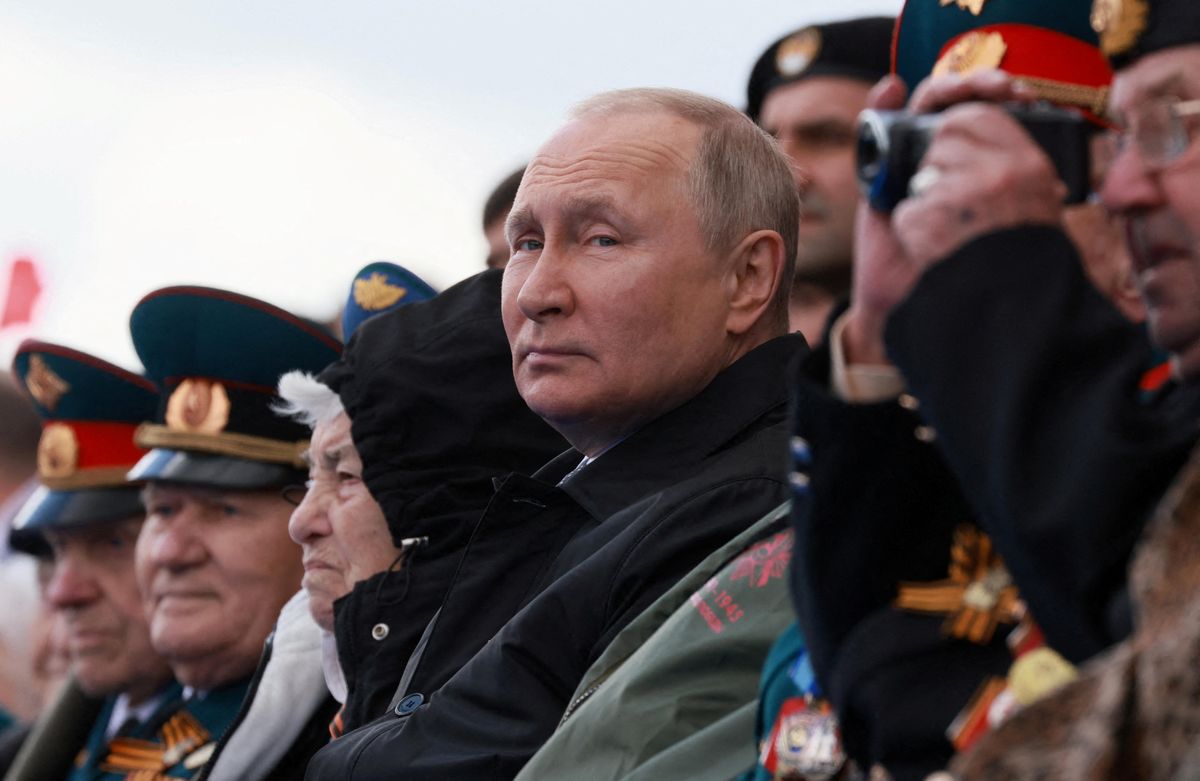In the end, Russian President Vladimir Putin threw the experts for a loop again.
In his Victory Day speech in Moscow a few hours ago, he didn’t formally declare war on Ukraine, announce a general mobilization, or claim even a partial victory in the conflict. In fact, he didn’t utter the word “Ukraine” a single time.
Rather, he framed the conflict as a justified Russian response not only to a threat posed by the “neo-Nazis” in Kyiv and their NATO backers, but also to 30 years of broader mistreatment at the hands of a decadent and hostile West.
In perhaps the only real clue about Moscow’s intentions, he called the Donbas region of eastern Ukraine “our land” but didn’t mention any other mainland parts of the country.
In the end, this was a cautious speech, one meant to bolster Russian popular support for continued action in Ukraine, but without raising the stakes too high, too soon, for the Russian public.
Putin can still declare a general mobilization or an official "war" any time he likes, but he appears to see such a move — which would instantly expose a much broader swathe of the population directly to the war — as unwise or unnecessary for the moment.






